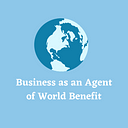Organization Development and Managing Change Can Be a Time When People Thrive
One by Michele McQuaid of the Change Lab was the largest survey of the American workplace of its kind. It explored how and why today’s relentless change was related to stress and burnout. But what the Change Lab found was that this is largely a myth. Relentless change was related to stress- but only of the time. What the surveys showed was that it was not the amount of change that causes stress and burnout. Instead, it was the WAY that the change management happened. Change that combined high engagement + appreciative inquiry’s focus of strengths soared in its success rates.
In addition, an even more recent study just released this week by Gallup confirmed much the same thing. Genuinely developmental approaches to change-approaches that elevate people’s strengths and are the starting point for better collaboration-are helping companies see sharp increases in engagement scores along with higher performance.
Indeed, one thing is getting quite clear. We change best when we are strongest, not when we are the weakest. Moreover, this poses a paradox, doesn’t it? It’s often precisely when we need to change the most that we are feeling the weakest, for example, a company near bankruptcy, or someone engulfed in a dark depression. That is something we might call “the mean paradox of change.” It is mean, it is wicked, and it is a paradox that needs to be reversed. It’s precisely those times we are at our weakest that we need more than normal strength.
That’s why deliberately developmental organizations do better in OD and change. They are continually forging a culture that can see, elevate, and collaborate to create chemistry effects via unique configurations of everyone’s strengths. And when difficult change happens, the deeply developmental business can surround and saturate the change challenge or opportunity in an incredible theater, or surround sound of strengths .
Investing in the continued growth and development of employees gives them the tools they also need to implement change. Continuous employee development-via incredible change projects- provides an incentive to remain with the company and explore additional career pathways that may further benefit the organization.
Recognizing employees for their contributions further validates their competence. With this validation comes a sense of belonging and bonding, including an atmosphere of respect and incredible trust. Thus, a community-of-competence is created within the organization where employees feel free to share openly and support actively. They do more than empower. They ennoble and depend on one another.
Change doesn’t have to be scary-or a source of stress and burnout. By taking an appreciative inquiry approach-see Research in Organizational Change and Development to organizational development and change management, which addresses the basic human needs of all stakeholders, organizational change can have a positive impact, not just on employees, but also on the organization as a whole.
Originally published at https://davidcooperriderai.co.

